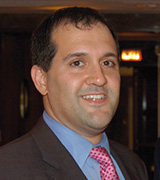- FOKION AVGERINOS – DR. IKE: Athletic Director, Youth Mentor, and Healer
- American Hellenic Institute’s Golden Jubilee Celebration
- Leadership 100 Concludes 33rd Annual Conference in Naples, Florida
- Louie Psihoyos latest doc-series shocks the medical community The Oscar–winning director talks to NEO
- Meet Sam Vartholomeos: Greek-American actor
Time for a Youth Movement

Endy Zemenides
At this year’s annual Cyprus Federation Conference, I moderated a panel discussing “youth” initiatives undertaken by young Cypriots in various groups (CYCA – the Cyprus Youth Committee of America; CYP – the Cyprus Young Professionals; and HALC.) Just two years earlier, I had served on a panel at “The Future of Hellenism” conference, discussing many of the same issues. These two experiences have left me more than a little worried about the gulf in perceptions and expectations between generations in our community.
Let’s take a look at some of these perceptions. The older generation believes that the “youth” cares mostly about parties, social networking, and unearned glory. The “youth” believes that the older generation cares mostly about holding onto power, cares too much about glory, and doesn’t really give the youth opportunities to lead.

There are too many misperceptions, and these misperceptions prevent us from reaching our full potential as a community and may imperil our future.
With the NFL Draft approaching, maybe we can take a page out of the NFL play book and build up the community’s youth the way that league builds up young players:
1. Identify and “scout” talent during college years. These years are typically the most formative in one’s intellectual and professional life, and this is where far more intensive intervention is needed. An internship, opportunity to volunteer or a mentor will certainly make a difference in where one ends up for graduate studies or where one lands a first job. It is also the time where a younger person has greater flexibility that early professional life does not provide, an ideal time to bring them up to speed on the community.
2. Bring young professionals into the “system.” There are many youth/young professional groups that are doing commendable work, but for the most part they are operating in a bubble apart from their main sponsoring organizations, and thus neither fully advancing the cause of their sponsoring organization nor advancing the capabilities and status of their members as rapidly as they can. Creating these “youth” groups – and then populating them with professionals that range from late 20’s to mid 30’s may in fact be counterproductive.
Young professionals are entrusted with much in corporate America, and some are even starting families, but as a community we are keeping them in the developmental league for far too long. Those being treated as “youth” today should be integrated into larger, sponsoring organizations and not only be challenged to step up, but given appropriate guidance and institutional support.
Younger co-chairs/vice-chairs should be assigned to each one of the community’s causes, or each organization’s committees. These people should be given a goal that is ambitious enough to make a difference, but modest enough to be attainable. This will make every lobbying effort, every fundraising effort, every event, a greater success and prepare the future leaders of these efforts via hands-on experience.
3. Demand – and reward – success. Age doesn’t determine success. A younger person is more likely to be technologically savvy and could lead an online advocacy effort or may have some personal connection that they can use to great effect for our causes. They should be put in the game, and if they can succeed consistently, they should be rewarded with some level of leadership. There should be objective standards for success, and those who excel according to those standards should be treated as All-Stars, no matter what their age.
Championship teams do not win solely with veteran players. In the mix there have to be beginning of prime players and younger/rookie players with talent, enthusiasm and energy. Younger players cannot learn the game, or how to conduct themselves as professionals, by themselves. They need the guidance of veterans. Right now we have our younger players and our veterans playing in two different leagues. It is time to bring them together.
[sws_grey_box box_size=”620″] Endy Zemenides is the Executive Director of the Hellenic American Leadership Council (HALC), a national advocacy organization for the Greek American community. To learn more about HALC, visit www.hellenicleaders.com [/sws_grey_box]











0 comments